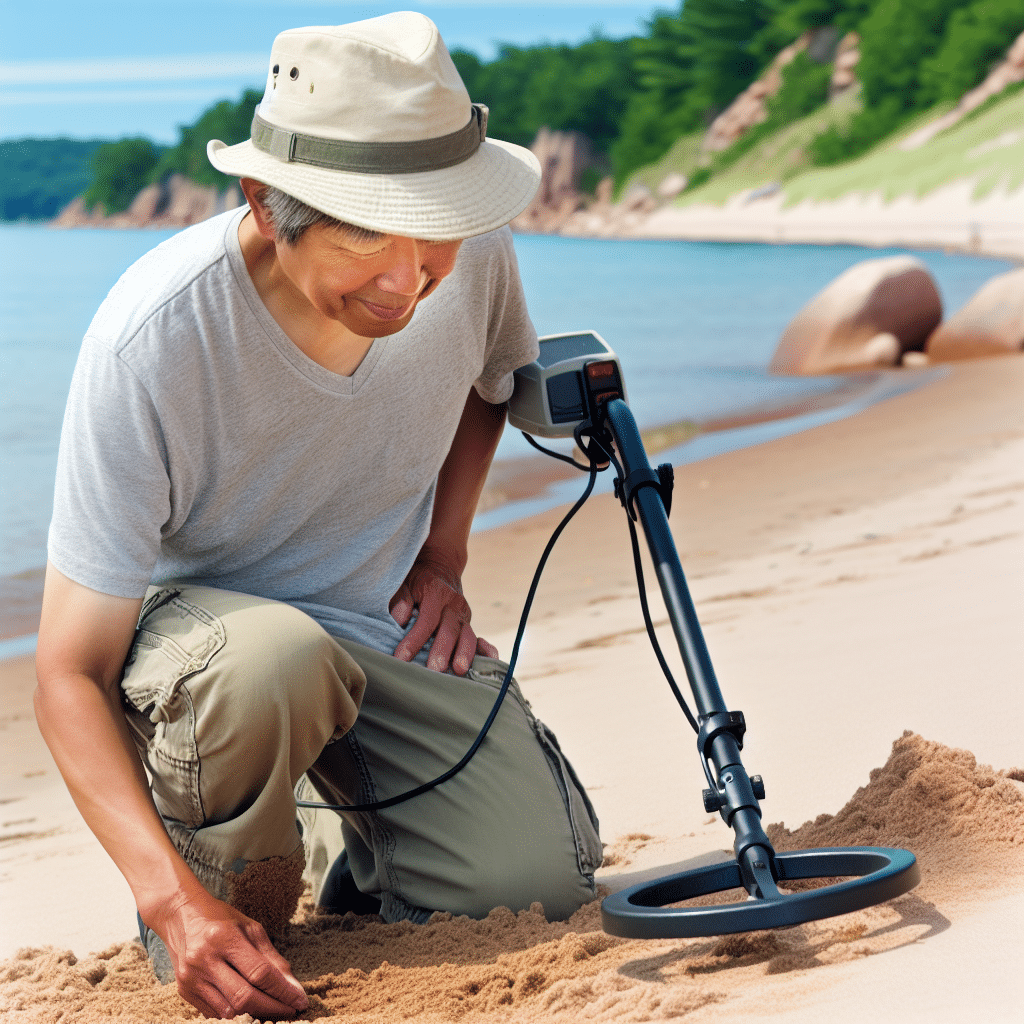Imagine the rush of excitement as your metal detector beeps, signaling the presence of a hidden treasure beneath the soil. Metal detecting is not just a hobby; it’s an adventure that can lead to discovering historical relics, rare coins, and even precious artifacts. Michigan, with its rich history and diverse landscapes, is an ideal destination for metal detecting enthusiasts. This article delves into the unique experience of metal detecting in Michigan, highlighting the best locations, legal considerations, and tips for a successful treasure hunt.
Why Choose Michigan for Metal Detecting?
Michigan is a treasure trove of history, from its Native American heritage to its pivotal role in the development of the United States. The state’s varied landscapes, including beaches, forests, and urban areas, provide an abundance of opportunities for metal detecting. Here are a few reasons why Michigan is a top choice for this exciting hobby:
Rich Historical Background
Michigan’s history is deeply intertwined with the Great Lakes, early European settlements, and the growth of the automotive industry. This historical richness increases the chances of unearthing exciting artifacts, such as old coins, military relics, and personal items lost by settlers and traders.
Diverse Landscapes
From the sandy shores of Lake Michigan to the dense forests of the Upper Peninsula, Michigan offers a variety of terrains for metal detecting. Each landscape presents unique opportunities and challenges, making the hobby even more thrilling.
Top Locations for Metal Detecting in Michigan
Where should you start your metal detecting adventure in Michigan? Here are some prime locations that are popular among enthusiasts:
Lake Michigan Beaches
The beaches along Lake Michigan are popular spots for metal detecting. Over the years, vacationers have lost countless items, including rings, coins, and other valuable objects. The ever-changing sands also mean that new treasures can emerge frequently.
Old Homesteads and Farms
Abandoned homesteads and farms are perfect for finding historical artifacts. These sites can yield a variety of items, from old tools and kitchenware to forgotten jewelry and coins. When searching these areas, be mindful of property ownership and always seek permission before detecting on private land.
Public Parks and Historic Sites
Many public parks and historic sites in Michigan allow metal detecting. Some of the notable parks include Belle Isle Park in Detroit and Grand Haven State Park. However, it’s crucial to check local regulations and obtain any necessary permits before starting your search.
Legal Considerations: What You Need to Know
Metal detecting in Michigan comes with its own set of rules and regulations to protect cultural heritage and private property. Here are some key points to keep in mind:
State Parks and Recreation Areas
The Michigan Department of Natural Resources (DNR) allows metal detecting in certain state parks and recreation areas but with some restrictions. Always check the DNR’s website or contact park officials to understand where and when metal detecting is permitted.
Private Property
When detecting on private property, it is essential to obtain written permission from the landowner. Trespassing without permission can lead to legal consequences and damage the reputation of the metal detecting community.
Archaeological Sites
Metal detecting is strictly prohibited at designated archaeological sites and historic landmarks. Removing artifacts from these locations is illegal and can result in severe penalties. Always respect these protected areas to help preserve Michigan’s rich heritage.
Tips for a Successful Metal Detecting Adventure
To make the most of your metal detecting experience in Michigan, consider these practical tips:
Invest in Quality Equipment
A good metal detector is a crucial investment. While entry-level models are suitable for beginners, experienced detectorists might prefer advanced models with enhanced detection capabilities. Accessories like digging tools, headphones, and a pinpointer can also enhance your efficiency.
Research and Planning
Researching your chosen site can increase your chances of success. Study historical maps, read local history books, and join metal detecting forums to gather valuable insights. Planning your search area in advance can save time and help you cover more ground efficiently.
Respect the Code of Ethics
Always follow the metal detecting code of ethics: respect the environment, fill any holes you dig, and dispose of any trash you find. Responsible metal detecting helps maintain a positive image of the hobby and ensures that future generations can enjoy it too.
Conclusion: Unearth Michigan’s Secrets
Metal detecting in Michigan offers a unique blend of adventure, history, and the thrill of discovery. With its varied landscapes and rich historical background, the Great Lakes State is a prime destination for treasure hunters. Whether you’re searching along the shores of Lake Michigan or exploring old homesteads, every beep of the detector could potentially lead to uncovering part of the state’s hidden past. Remember to respect local regulations and practice responsible metal detecting to ensure that this fascinating hobby can be enjoyed for years to come. Happy hunting!




